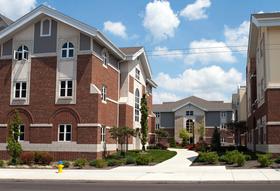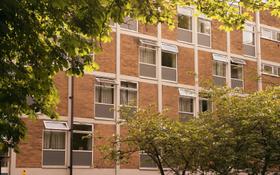Dormitories were once typically reserved for students attending university campuses, but more community colleges have begun opening dorms for their students. The inclusion of dorms on some community college campuses is garnering much attention, as well as surprising tension. While many assert that dorms for community college campuses provide greater conveniences for their students, others argue that the dorms should only be reserved for university campuses.
The Demand for Dormitory Living
According to the Los Angeles Times, the rising cost of tuition at many universities is pushing a larger number of students towards the more affordable degree pathways provided by community colleges. Given these increasing enrollment numbers, many community colleges are looking for ways to accommodate the growing ranks of students, and dormitories are becoming a popular solution.
Speaking on this latest development is Karen Kent from the American Association of Community Colleges in Washington D.C., “We do think it's a trend for more community colleges to provide residential housing for students.” Indeed, this trend is undeniable, as schools in Texas, Minnesota, Florida, and Washington are already completing the construction of dorms on select community college campuses.
Experts predict that California’s community colleges may be among the most popular campus locations for new dormitory construction, given the immense numbers of students enrolled on these campuses. In fact, 11 of the state’s community colleges already provide dormitories for their students. Currently, an estimated 2.8 million students are enrolled in the 110 community colleges of California, and the number is expected to rise. Remarkably, this immense number equates to nearly of all community college students in the country.
The Pros of Living in Community Campus Housing
There are a plethora of benefits associated with living in a community college’s dorms, including:
- Convenience – Being able to live in close proximity to campus provides great convenience for attending class, partaking in study sessions, and participating in extracurricular activities. In addition, most dorm fees already include electricity, internet access, and other utilities, which give you fewer bills to manage each month.
- Friendships – Living in a community college dormitory gives you the opportunity to meet many friends and companions, and given a large number of residents, you will likely never be lonely.
- College Experience – For some students, being able to live in a dorm completes the entire college experience.
Subsequently, those who support community college dorms argue that on-campus living options increase the campus' appeal, attracting more students. For example, Sierra Community College, located near Sacramento, California, has created housing that caters to the unique needs of its diverse student population. Through its extensive dormitory services, the school has drawn in more international students from countries like Canada and Japan. In addition to all of the features essential for daily life, Sierra extends their dorms’ comforts by providing residents with a meal card that can be used at local restaurants surrounding the campus.
This video offers a look at your housing options at community college.
The Cons of Community College Dorm Life
Of course, with the benefits of dorm life come drawbacks. For the student, some of the negatives associated with community college dorms include:
- Roommate Issues – If you have a roommate that does not mesh well with your personality or lifestyle, this can cause conflict and problems in your living environment.
- Lack of Privacy – As with any communal living situation, there is a lack of privacy in dorm life, especially if you share bathrooms with all of your floormates. In addition, there is usually always noise and a flurry of activity that can distract you from your studies.
- Mandatory Move-Outs – Many dormitories are not open during school breaks, such as spring break or winter break, and therefore, you will not be able to live in the dorms during these times.
Beyond the drawbacks of dorm life for students, opponents of dormitories on community college campuses believe that dorms fundamentally “defeat the purpose of a community college.” As reported by The Mount Observer. For example, in regards to Mount Wachusett Community College (MWCC), some critics argue that the school’s proposed construction of new dorms may actually degrade the benefits of the community college atmosphere. Some fear that “Putting dorms on campus may take away from the diversity. The dorms could attract younger students who want to experience living away from home and would be less appealing to older students.”
This video shows the housing options at Cortland Community College.
Further expounding upon the dorms at MWCC, one commentator argues that in specifically not offering campus housing, community colleges are more capable of providing educational opportunities for students working full or part-time, struggling to raise a family, or facing other personal and professional obligations. According to critics, new investment in dorms would simply deplete funding from other programs and resources, and “The money burden of putting dorms on campus would take away the repairs and technology upgrades the school really needs.”
While some may argue against community college dorms, one fact is certain: more and more campuses across the country are constructing dormitories to cater to the needs of community college students.
Questions? Contact us on Facebook. @communitycollegereview














